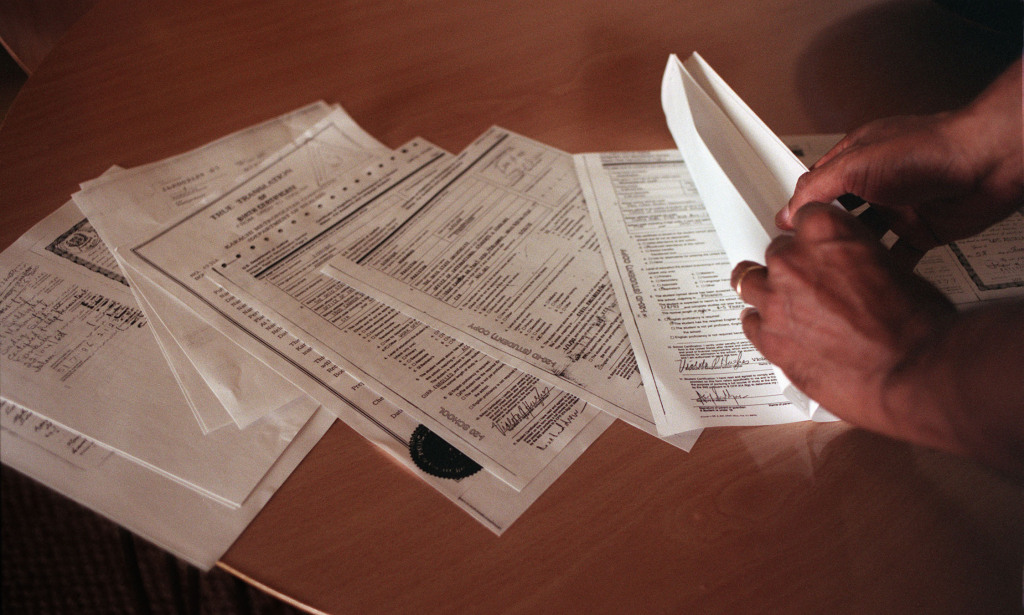President Donald Trump on Monday ordered the heads of the U.S. Department of Homeland Security and Department of Labor to “protect United States workers” from any damage to wages or working conditions caused by employment of foreign citizens on the H-1B visa. Trump’s executive order also directs chiefs of federal government agencies to audit their use of foreign contract workers.
Whether changes will be implemented and enforced remains to be seen, said Ron Hira, a Howard University professor who studies the H-1B. Major Silicon Valley technology companies may be affected, as most have extensive contracts with the federal government and also obtain workers from staffing and technology firms, Hira said. A 1976 federal law prohibits foreign citizens from holding jobs in the federal civil service, but many federal contractors employ large numbers of foreign workers.
The order gives the secretaries of Labor and Homeland Security 45 days to take “appropriate and consistent action.” The two secretaries must also adopt any measures necessary to ensure that federal-contractor companies employing H-1B workers, including firms placing foreign citizens in other companies, abide by a legal requirement that they not give hiring priority to H-1B visa holders.
U.S. Department of Labor Secretary Eugene Scalia, in a meeting Monday with Trump and representatives of U.S. technology workers, noted that a direct employer of an H-1B worker must file an attestation that hiring the foreign citizen won’t adversely affect similarly situated U.S. workers. But companies where those foreign workers are placed do not have to make such an attestation, Scalia said, according to a C-Span broadcast. The executive order, Hira said, appears to provide “a way to ensure that ‘secondary employers’ — outsourcers — adhere to the H-1B attestations as though they are direct employers of the client.”
Such a change, if enforced, should prevent abuses such as those reported at Southern California Edison and Disney, where workers allegedly had to train their own H-1B replacements, Hira said. In Edison’s case, the contractor companies attested that their hiring of H-1Bs didn’t harm their workers, but they didn’t have to promise their H-1B workers weren’t harming U.S. workers at Edison, Hira said. To date, whether companies make good on their attestations has “never been enforced,” Hira added.
Under Trump’s order, federal agencies must report whether in fiscal years 2018 and 2019 their contractors or subcontractors used temporary foreign labor, and if so, for what work and whether opportunities for U.S. workers were affected. Each agency head must also report whether contractors and subcontractors performed services overseas that had previously been done in the U.S., and whether that affected U.S. workers. Agency chiefs have 120 days to report to the White House on their audits, along with recommending any necessary fixes and proposing any actions by the President they may find appropriate, the order said.
The H-1B, intended for jobs requiring specialized skills, is heavily used by Silicon Valley’s technology giants, which have pushed to expand the annual 85,000 cap on new visas, arguing they need more of them to secure the world’s top talent. Critics point to alleged abuses by contracting companies and outsourcers, and charge that these firms and major tech companies use the H-1B to supplant U.S. workers, drive down wages and facilitate outsourcing.
Hira noted that the U.S. government is by far the largest consumer of contracted information-technology work but data are scarce on how many H-1Bs may be working on government contracts or how much government contract work is being done overseas.
Trump’s order Monday followed release of a “fact sheet” by the White House that cited the decision by federally owned Tennessee Valley Authority to “outsource 20 percent of its technology jobs to companies based in foreign countries.” The President on Monday said he was firing the head of the TVA, an energy, infrastructure and economic development agency.
The TVA in a statement to this news organization Monday said all its employees were U.S. citizens. But the agency said work in its IT department may be done by “individuals who may legally work in this country,” which would include foreign citizens on visas. The TVA declined to comment on whether its outsourcing involved H-1B workers.
Trump signed the order after meeting with representatives of U.S. technology workers, including Kevin Lynn, head of advocacy group U.S. Tech Workers and the executive director of Progressives for Immigration Reform, which opposes broad U.S. employment of foreign workers. The group in recent weeks launched an advertising campaign against the TVA’s use of contractors, and Trump acknowledged that one of the TV ads on Fox News had brought the issue to his attention.










